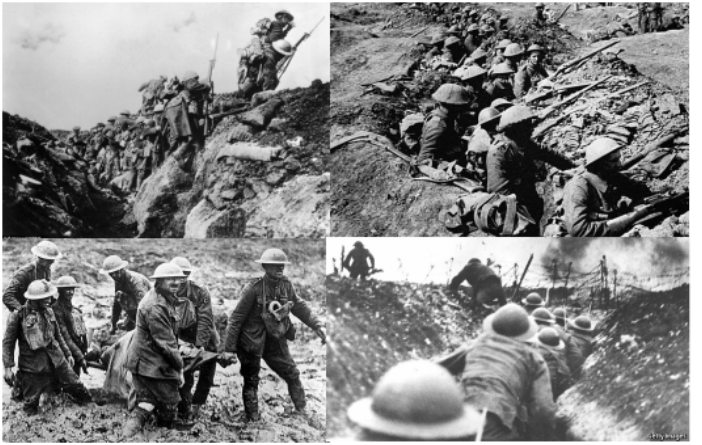
"One hundred years ago to the day, World War 1 broke out and the entire globe was eventually placed into conflict. The war was mostly fought by soldiers in muddy trenches exchanging thousands of lives for the benefit of gaining a few yards of ground which was later subequently lost to the other side. It was supposed to be a war to end all future wars and despite the futility of it, patriotism had never been greater in Great Britain.
Unlike the Second World War whose objectives seemed far less jingoistic from the outset, more than nine million combatants were killed and a casualty rate exacerbated by the German's technical and industrial sophistication produced a tactical stalemate for most of the four years it was fought on the western front.
The First World War could be said to have destabalised the world for decades to come after its conclusion on the 11th, November, 1918 as it paved the way for major political changes which included revolutions in many of the nations involved.The war drew in all the world's great powers which assembled themselves in opposing war alliances; the Allies (based upon the Triple Entente of Great Britain, France and the Russian Empire) and the Central Powers of Germany and Austria Hungary.
These alliances were reorganised and expanded as more nations entered the war which had started in Europe. Japan and the United States joined the Allies and the Ottoman Empire joined the Central Powers. Ultimately, more than seventy million military personel including sixty million Europeans were mobilised into one of the greatest wars in history.
To my reasoning and a long established interest in British history, I would rate one of the few things to have come out of this bloody conflict apart from some great war poets who wrote about their experiences, as a move towards giving women the franchise and while it took a number of years longer to properly achieve on a par with the men, it nevertheless was responsible along with the suffragettes for having obtained it." William Forde: July 28th, 2014.
